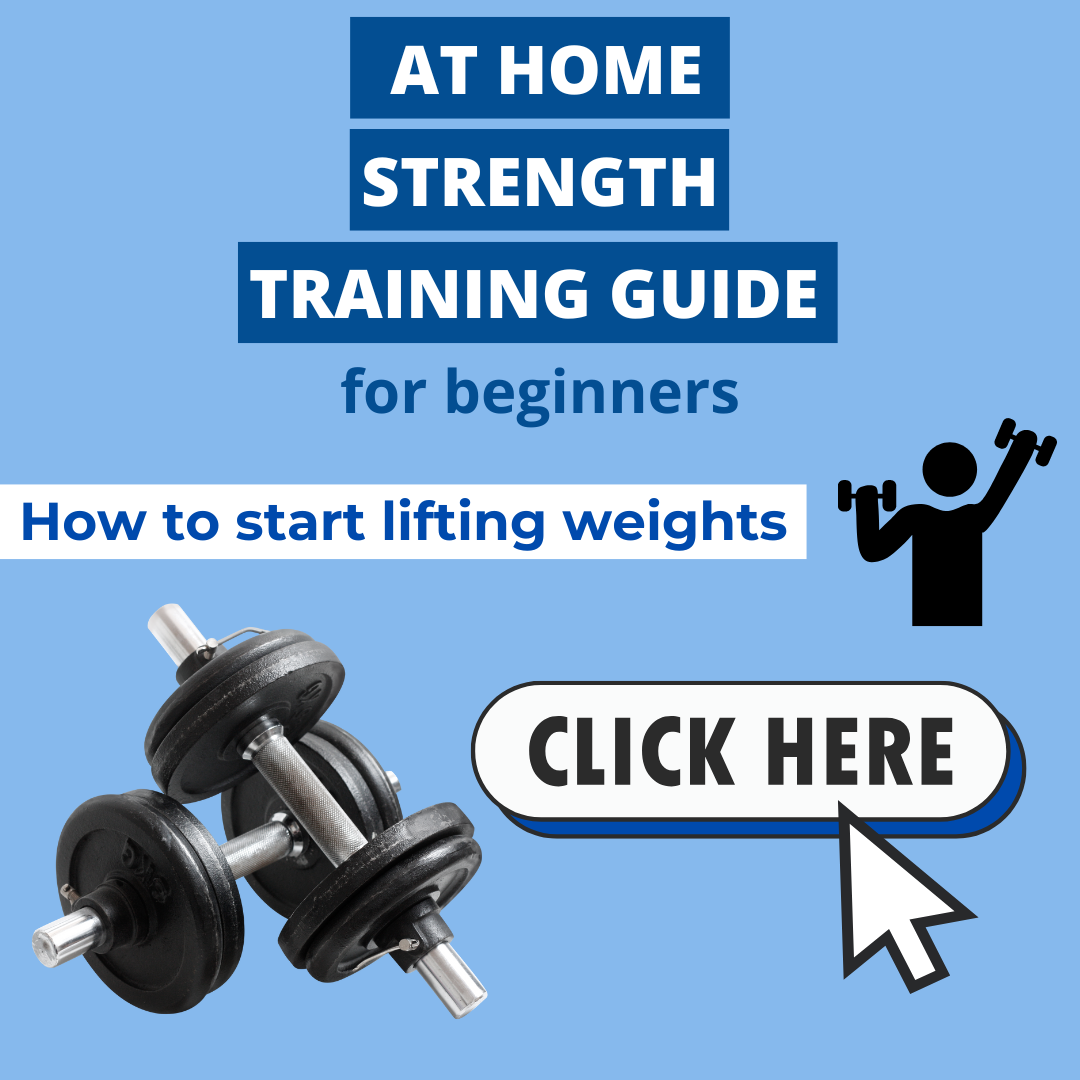6 Giveaway Signs You’re in a Calorie Deficit

If you want to lose 20 pounds and keep it off for life, the one thing you need to be sure of, above all else, is that you’re in a calorie deficit.
That means you’re consuming fewer calories than you burn.
But then that gets you wondering…
Well, how do I know if I’m for sure even in a calorie deficit?
That’s a good question.
While there isn’t a specific test or chart that says, “Hey, congratulations! You’ve made it 🎉” there are several signs you’re in a calorie deficit that let you know you’re making progress and on the right path.
How do I know if I am in a calorie deficit?
1. Weight loss
Weight loss is probably one of the first signs you’re in a calorie deficit that comes to mind.
The thing is, the scale isn’t always an accurate representation of your progress.
Tell me, has this ever happened to you? ⇩⇩⇩
You step onto the scale, proud of yourself for absolutely crushing it with your nutrition and workout plan yesterday.
…Only to see that you’ve gained a few pounds overnight.
What is going on?!
“This scale HAS TO BE broken,” you think to yourself.
There just can’t be any other explanation 😂
There is an explanation and it’s simple…
Weight loss just isn’t linear.
If you weigh yourself every day (which I highly recommend), you’ll come to find out that your weight can jump all over the place.
So while the scale can be a useful tool to have at your disposal, you should take the number you see day to day with a grain of salt.
Your overall weight loss trend (i.e. month over month) is what matters most.
2. Measurements going down
On top of weighing yourself every day, you also want to make sure you’re taking measurements every 1-2 weeks.
The most important ones are:
- Waist (narrowest part of your torso)
- Umbilicus (slightly below your belly button)
- Hip (this measurement should include where your glutes stick out the most)
- Thigh (measure your leg about 6 inches higher than your knee)
If one or more of your measurements are decreasing, it’s a sign you’re in a calorie deficit.
As we just talked about, the scale can be fickle.
So sometimes, you can get stuck in this pattern where you’re losing inches but not weight.
That scenario plays itself out when you’re new to strength training, which allows you to build muscle and lose fat at the same time.
So what do you do when this happens?
You keep doing EXACTLY what you have been.
Being able to build muscle and lose fat at the same time is the holy grail of fitness.
Just know that down the line the scale will catch up with your reduction in inches.
And eventually, this sort of “newbie superpower” wears off, at which point you’ll have to choose one goal to tackle at a time–either build muscle or lose fat (aka bulking or cutting)
3. Clothes fitting better, etc
There’s not really too much detail to go into on this one.
Are your clothes fitting better?
Have you gone down a belt size?
Do you see noticeable changes when you look in the mirror or through progress pictures?
All of these can be signs you’re in a calorie deficit.
4. You’re hungrier than normal
Yes, hunger is one of the signs you’re in a calorie deficit.
Should you be starving and on the verge of withering away?
Not at all.
The reason you’ll experience hunger is because your body wants to maintain homeostasis.
That’s when you’re not gaining or losing weight, or having to deal with feelings of hunger.
It’s a nice equilibrium.
Making any changes that upset this balance (i.e. being in a calorie deficit and eating less food) takes your body out of homeostasis, with the end result being hunger.
Don’t worry, hunger won’t wreck your metabolism or cause some type of irreparable damage.
If hunger starts getting the better of you, one way to reduce it is by making sure you’re eating enough protein.
5 . You feel more tired than usual
Fatigue and feeling like you could use more sleep are signs you’re in a calorie deficit.
If you really think about it, this is to be expected.
You’re literally eating less, which means you aren’t giving your body as much energy.
And while you might brush this off as no big deal (because you wear being able to operate on little sleep like a badge of honor), the truth about weight loss is that it becomes a whole lot harder when you’re not getting enough of it.
Inadequate sleep causes your body to produce more cortisol, which is a stress hormone that makes you hungrier.
You’re already eating less than you normally would in a calorie deficit.
Do you really want to compound that with extra cortisol and be even hungrier?
6. Your hands and feet might get cold
Body fat provides heat and by losing body fat, you’re producing less heat.
So as you start to get leaner, another one of the signs you’re in a calorie deficit is that you might notice your extremities get colder.
By extremities, we’re talking hands and feet.
The reason they get cold is because your body prioritizes providing heat to your vital organs first, like your heart, lungs, and kidneys.
Considering your extremities are the furthest things from all that, they’re last in line for some warmth.
How do I know if I’ve been in a calorie deficit for too long?
If you’re doing things appropriately and sustainably, then what I’m about to say won’t be an issue for you.
But if you stay in a calorie deficit for too long or slash your calories too much, it can cause some not-so-good side effects you don’t want to have to deal with.
Those include:
- Missed periods
- Lower sex drive
- Hair loss
- Lousy workouts
- Increased irritability
That’s why it’s good to have an idea about how long you should stay in a calorie deficit (it will be different for everyone).
What can I do to make staying in a calorie deficit easier?
Let’s shift from signs you’re in a calorie deficit to what you can do to actually remain in one.
I like to call these 5 tips I’m about to lay out for you the calorie deficit commandments.
If you follow these, and do so consistently, results will be inevitable.
Calorie deficit commandments
Eat in a calorie deficit
You can figure out the number of calories that would be for you here.
Don’t make the weight loss mistake of assuming strictly “healthy eating” will just automatically put you in a deficit.
Weight loss doesn’t have to be this all-or-nothing thing!
You don’t have to deprive yourself or cut out all of your favorite foods in order to see results.
- You can have carbs
- You can enjoy your favorite sweets, treats, and snacks
- You can go out to eat.
… All while seeing tremendous losing weight progress.
Maintaining a calorie deficit is all about having balance.
Hit your protein goal
Protein is the most filling macronutrient so it can help you keep your hunger in check and your calorie intake down.
A good place to start is anywhere from 0.7-1g per pound of body weight daily.
Or if you have a considerable amount of weight you want to lose, aim for that same range but of your GOAL body weight.
This weight loss grocery list I came up with has a ton of ideal protein sources to choose from, as well as other foods you should be getting at the store.
Strength train 3-4 times a week
I don’t want you to be that person who goes to the gym without a plan, wandering around aimlessly from machine to machine like a lost puppy dog.
Use this post to create a customized workout routine from scratch:
How to create your own strength training plan 💪🏾
If you want even more info about strength training, I gotchu.
Give these articles a read-through:
- Progressive overload (this strength training principle is fundamental to making progress and seeing results)
- How long should your workouts last?
- How heavy should you lift during your workouts?
Get your daily steps
The healthiest people in the world who live the longest all have something in common.
Want to know what it is?
They’re up, active, and get plenty of movement throughout the day (which also burns calories and helps you stay in a calorie deficit).
Ideally, you want to shoot for somewhere between 7,500-10,000 steps every single day.
Don’t think that’s possible?
Let me prove you wrong and show you how to get 10K steps a day.
Prioritize sleep and stress management
Insufficient sleep and stress cause your body to produce more cortisol.
Remember from earlier how that makes you hungrier?
If there’s one kryptonite to maintaining a calorie deficit, it’s hunger so try to get your 7-9 hours of sleep each night and take up some habits aimed at relieving stress (I’m a big fan of mindfulness meditation and journaling).
How long does it take for a calorie deficit to be noticeable?
If you’re always taking the weekends off, consistently going over on your calories, or skipping a bunch of workouts, don’t be surprised by a lack of results.
So first thing first, you need to make sure you’ve been consistent about being in a calorie deficit.
Assuming you’ve been consistent, you should start to see noticeable changes when you look in the mirror or through progress pictures around month 2-3.
Keep in mind that, oftentimes, we’re the last ones to recognize physical changes in our own bodies because we’re the ones that see them every single day.
You’ll see other changes well before ones you’re able to notice with the naked eye, which come from the signs you’re in a calorie deficit we’ve talked about.
The number on the scale should be going down and/or your measurements should be decreasing.
Your clothes will also start fitting better.
What should I do if I’m in a calorie deficit but still not losing fat?
You’re working out, eating healthy, and staying consistent.
There’s just one problem.
The scale hasn’t budged even though you’ve been in a calorie deficit for a while now.
So what should you do if you’re in a calorie deficit but not seeing the scale go down?
If you’re legitimately in a calorie deficit but you’re not losing weight or inches, it can only mean one thing.
And that is…
You’re not actually in a calorie deficit.
There’s a big difference between thinking you’re in a calorie deficit and actually being in one.
It’s scientifically impossible to be in a calorie deficit and not lose either pounds or inches.
Ask yourself a few questions:
- Are you accounting for ALL the calories you eat? All the nibbles, bites, and snacks you take whenever you pass through the kitchen or from your coworker’s desk count too. So do liquid calories.
- What about the weekends? Are you good Monday-Friday but once the weekend hits, you throw your diet out of the window?
- How are your workouts? Are you strength training 3-4 times per week with an emphasis on compound movements and progressive overload?
- What about daily movement? Are you getting between 7,500-10,000 steps every single day?
Those are just a few areas you can peel back the onion on to determine what might be holding you back from actually being in a calorie deficit.
Signs you’re in a calorie deficit FAQs
Is it OK to have 800 calories a day?
No!
That number of calories isn’t enough even for a toddler.
Sustainable weight loss (i.e. being able to not only lose the weight but actually keep it off) doesn’t come from super low, 1,200-calorie crash diets.
You think slashing your calories super low will help you lose weight faster but it actually has the opposite long-term effect.
You’d be miserable and ravenously hungry the whole time, which sets you up to overeat and binge, neither of which will help you lose weight (and both can actually lead to weight gain).
How do you know if you’re in a calorie deficit without counting calories?
Can you lose weight without counting calories?
Yes.
Would I advise you to do that, especially if you’re just starting out on your weight loss journey or have been struggling to lose weight for a while now?
No.
I mean…
Would you try to save money without keeping track of your income and expenses?
Counting calories follows a similar concept.
It ensures you’re eating the correct number of calories that will lead to weight loss.
And it’s not something you have to do forever.
It’s just a tool to get yourself comfortable with nutrition and learning about portion sizes.
However, if you’re DEAD SET against counting calories, the signs you’re in a calorie deficit from this list still apply.
Weight going down, measurements decreasing, feeling a little hungrier (but not starving), etc.
What happens if you don’t eat enough calories when trying to lose weight?
Your body won’t go into “starvation mode” if that’s what you’re thinking.
Being in a calorie deficit will ALWAYS equal weight loss, until the end of time and even beyond that.
Will I lose belly fat by being in a calorie deficit?
Yes, you lose fat overall (including in your midsection) by being in a calorie deficit.
But just know you can’t spot reduce body fat, so doing a bunch of crunches or sit-ups won’t help you target belly fat specifically.

What's up?
I’m Chad, I’m happy you’re here! I’m a certified personal trainer and my goal is to help you form practical, sustainable habits that lead to lifelong fitness results. If you want to lose fat, build muscle, and live a healthier, happier life then you’re right where you need to be. 💪🏾
Free resources
⬇⬇⬇










0 Comments